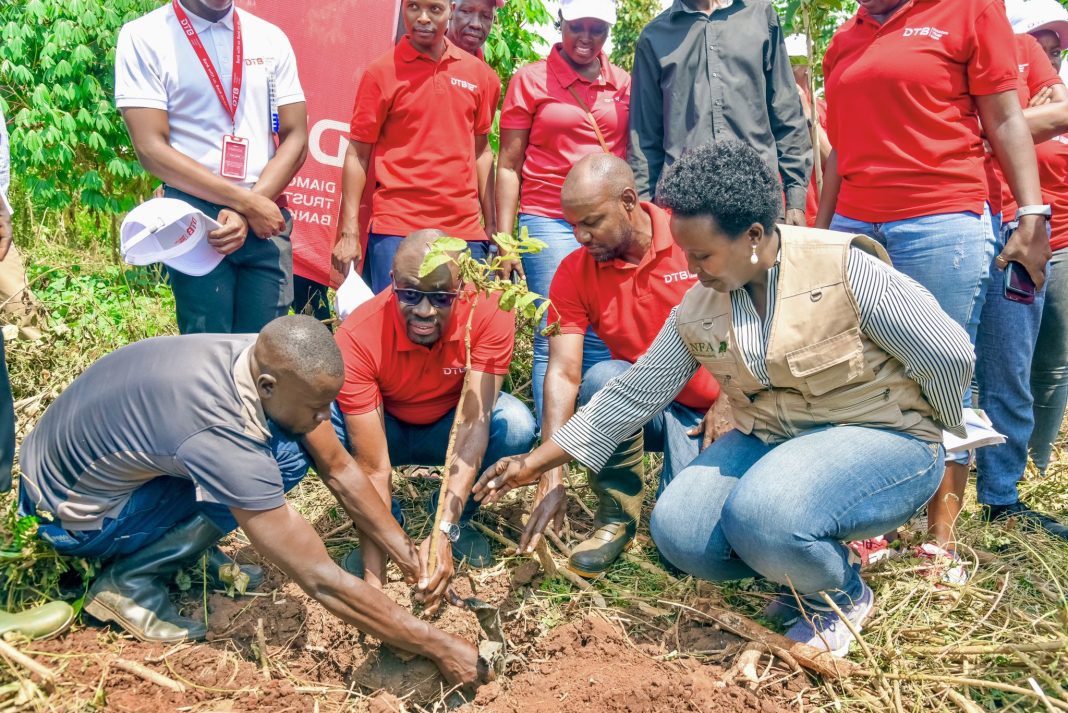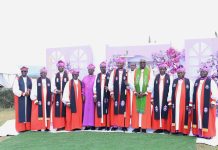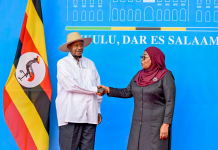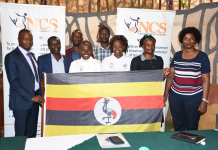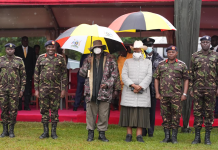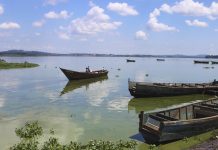By David Mwanje
In a shining example of public-private synergy, Diamond Trust Bank (DTB) Uganda has partnered with the National Forestry Authority (NFA), under the stewardship of the Ministry of Water and Environment, to restore 19 hectares of degraded land in the Mabira Central Forest Reserve. This initiative, launched in the Nanga section of the Nyamawanyi block, is a cornerstone of the government’s ambitious reforestation agenda, aimed at reversing deforestation, enhancing climate resilience, and securing Uganda’s ecological future.
The partnership, now in its second phase, underscores the government’s visionary leadership in environmental conservation, as articulated in Uganda’s National Development Plan III (NDP III) and Vision 2040, which prioritize sustainable development and biodiversity preservation.
According to the Ministry of Water and Environment’s 2024 report, Uganda’s forest cover has dwindled to 9.5% from 15% in the 1990s due to illegal logging and encroachment. The government’s target to restore 24% forest cover by 2040 is gaining momentum through strategic alliances like this one, with DTB’s efforts aligning seamlessly with national priorities.
“This collaboration with DTB is a testament to the private sector’s trust in our government’s environmental policies,” said Hon. Sam Cheptoris, Minister of Water and Environment, during a recent address. “Under President Museveni’s leadership, we are restoring our natural heritage while creating sustainable livelihoods for our people.” The Minister highlighted that the government has allocated UGX 50 billion in the 2025/26 budget to reforestation programs, with Mabira as a flagship project.
Kaziro Kyambadde, DTB’s Head of Sustainability, echoed this sentiment, praising the government’s proactive framework. “The NFA’s clear guidelines and the government’s commitment to enforcement have made this partnership impactful. DTB is proud to support Uganda’s goal of a greener, more resilient nation,” he said.
DTB’s contribution includes restoring 26,000 hectares nationwide, with plans to rehabilitate 19,000 hectares in Mabira alone, a commitment that complements the NFA’s target to restore 2.5 million hectares by 2030, as per their 2024 strategic plan.
Juliet Mubi, NFA’s Public Relations Officer, lauded the government’s Collaborative Forest Management (CFM) framework, which has empowered communities to participate in conservation. “Thanks to the government’s inclusive policies, communities around Mabira are thriving through beekeeping, ecotourism, and herbal medicine harvesting,” she said.
The CFM approach has created over 5,000 jobs in forest-adjacent areas, according to a 2024 NFA report, showcasing the government’s ability to balance conservation with economic growth.
The restoration process, guided by the NFA’s scientific expertise, involves removing invasive species to allow native trees to flourish, ensuring ecological integrity.
Richard Jonas Ogen, NFA Sector Manager, highlighted the government’s robust enforcement measures, noting that 85 individuals involved in illegal logging were arrested in the past three months. “The government’s zero-tolerance policy on forest crimes is yielding results,” Ogen said, crediting the Uganda Police Force and judiciary for their support.
This initiative also aligns with Uganda’s commitments under the Paris Agreement and the Bonn Challenge, where the government pledged to restore 2.5 million hectares by 2030. A 2023 report from the Ministry of Finance indicates that reforestation efforts have attracted $120 million in international funding since 2020, a vote of confidence in Uganda’s governance.
President Museveni, in a June 2025 speech, emphasized the importance of such partnerships: “Our forests are our wealth. With partners like DTB and the dedication of the NFA, we are building a sustainable Uganda for future generations.” The Mabira project, backed by government policy and private sector investment, is a model for other regions, with plans to replicate it in Karamoja and West Nile.
As Uganda marches toward its 2040 forest cover target, the DTB-NFA partnership stands as a beacon of hope, demonstrating that with government leadership, private sector support, and community engagement, a greener Uganda is within reach.


